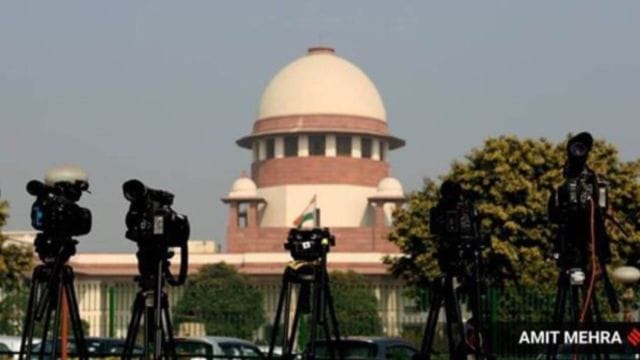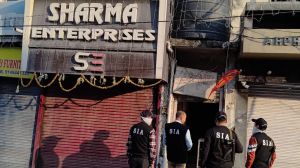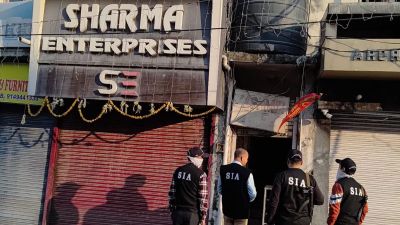Coming down heavily on the announcement of freebies by governments and political parties before elections, the Supreme Court Wednesday asked “are we not creating a class of parasites”, and said freebies are disincentivising people from working and, in states like Maharashtra, drying up the labour force.
When the bench of Justices B R Gavai and A G Masih was hearing a plea regarding shelter homes for the homeless, a petitioner said policies are only designed for the rich. “Main victims are the have-nots, the poor people, the homeless. Unfortunately, the cause of homelessness is not addressed. That’s the least priority in this country. Compassion, I am sorry to say, is only for the rich and not for the poor,” the petitioner said.

Justice Gavai took exception to the submission that compassion is only for the rich, and cautioned him not to make political speeches. “Don’t make a speech (like) at Ramlila Maidan in this court. In court, restrict yourself to the argument. If you are espousing the cause of someone, restrict it (to that). Don’t make unnecessary allegations. Don’t make a political speech here. We will not allow our court hall to be converted into a political platform,” he said.
The petitioner said, “That was not my intent. I didn’t mean that.” Justice Gavai said, “How do you say compassion is shown only for the rich?”
Advocate Prashant Bhushan, who was appearing for another petitioner, sought to explain that the submission had been made because some of the shelters had been removed for beautification of the area.
The bench, however, pointed out that the counsel for the Delhi government had informed that the shelters were in a dilapidated state.
Justice Gavai said an affidavit filed in the matter mentioned the facilities to be provided. “So, rather than promoting them to be a part of the mainstream of society by contributing to the development of the nation, are we not creating a class of parasites?” he said.
Story continues below this ad
“Unfortunately, because of these freebies, which come on the anvil of the elections… Ladli Behna and some other schemes, people are not willing to work. They are getting free ration, they are getting an amount without any work, why should they (work),” he said.
As Bhushan tried to intervene, Justice Gavai said, “We appreciate your concern for them, but wouldn’t there be a better way to make them part of the mainstream of society and contribute to the development of the nation? I am telling you about practical experiences. Because of these freebies, some states give free ration… so people do not want to work.”
Bhushan said, “There is hardly anybody in this country who would not want to work if there is some work”. He said the very reason people come to cities is because they have no work in their villages.
Justice Gavai said, “You must be having only one-sided knowledge. I come from an agricultural family. Because of the freebies in Maharashtra, which were announced prior to the elections, the agriculturalists are not getting labourers. When everybody is getting free at home…”
Story continues below this ad
This was not the first time Justice Gavai had flagged the issue of freebies. On January 7, while hearing a matter related to payment of salaries and pensions of judicial officers, he said, “The states have all the money for people who don’t do any work. When we talk about financial constraints, we also have to look at this. Come elections you declare Ladli Behna and other new schemes where you pay fixed amounts. In Delhi, we have announcements now from some party or the other saying they will pay Rs 2500 if they come to power.”
Incidentally, the Supreme Court is seized of petitions challenging freebies by political parties ahead of elections, but it is yet to start hearing the matter in detail.
A two-judge bench had, in the Subramaniam Balaji case in 2013, held that the “state distributing largesse in the form of distribution of colour TVs, laptops, etc. to eligible and deserving persons is directly related to the Directive Principles of State Policy” and warrants no interference by the court.
In the 2006 Tamil Nadu Assembly polls, the DMK had promised free colour TVs to all households which did not possess the same, if it was elected to power. The DMK won the polls and a provision of Rs 750 crore was made in the budget for implementing the promise. In the 2011 Assembly polls, the ruling DMK announced more freebies.
Story continues below this ad
The Opposition AIADMK-led alliance too announced free grinders, mixies, electric fans, laptop computers, 4 gm gold, thali (mangalsutra), Rs 50,000 cash for women’s marriage, green houses, 20 kg rice to all ration card holders even to those above the poverty line and free cattle and sheep, if it won. The AIADMK won the polls and took steps to implement the promise.
Subramaniam Balaji challenged these schemes in court.
On August 26, 2022, a bench, headed by the then Chief Justice of India, referred petitions seeking a ban on freebies to a three-judge bench which it said would look into prayers for reconsidering the judgement in the Subramaniam Balaji case.









